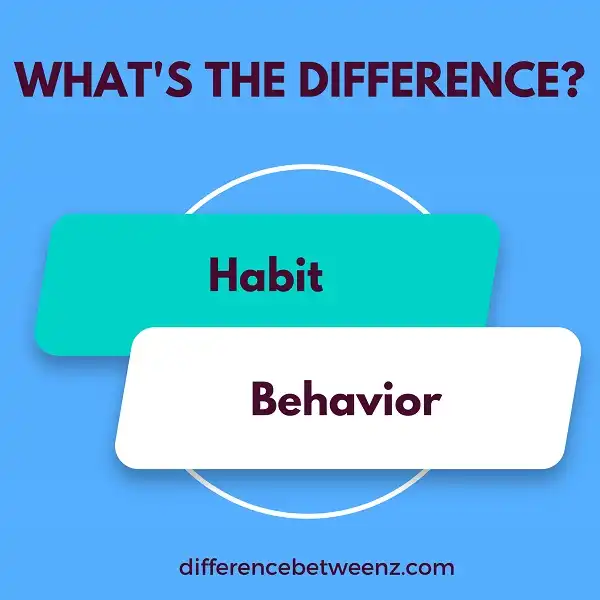There is a big difference between habits and behaviors. Habits are things that we do automatically without thinking, while behaviors are things that we choose to do (or not do). In order to change our behavior, we need to be aware of what we are doing and make a conscious choice to act differently. Changing our habits is a bit more difficult, but it is possible if we are deliberate about it. Let’s take a closer look at the difference between habits and behaviors so that we can start making positive changes in our lives.
What is Habit?
A habit is a behavior that is repeated so often it becomes automatic. Many things we do each day are habits, such as brushing our teeth, putting on our shoes, or making the bed. Some habits are good for us, like eating breakfast or flossing our teeth. Other habits might not be so good for us, like biting our nails or watching too much TV. No matter what kind of habit it is, it usually starts because we want to get something out of it – like feeling good or fitting in with others. Once we start getting that desired feeling, we tend to keep doing the behavior over and over again until it becomes a habit. So, a habit can be helpful or harmful, but once it’s established, it can be tough to break.
What is Behavior?
Behavior is the actions and reactions of an individual in response to their environment. It can be conscious or unconscious and is often mediated by neurological processes. Behavior is often studied in terms of its effect on the individual’s fitness, or reproductive success. For example, an animal that is more likely to survive and reproduce in a given environment will tend to have behaviors that allow it to do so. In some cases, these behaviors may be innate, while in others they may be learned through experience or social interaction. Understanding behavior is essential for fields such as ecology, evolution, and animal husbandry. It can also help us to understand and change our own behavior.
Difference between Habits and Behaviors
Habits are often defined as unconscious behaviors that are repeated regularly. Behaviors, on the other hand, can be either conscious or unconscious. In addition, habits are usually initiated in response to some cue or trigger, while behaviors may not have an external trigger. For example, nail-biting may be a habit that is triggered by anxiety, while smiling is a behavior that can occur spontaneously. Finally, habits tend to be more resistant to change than behaviors. This is because habits are often deeply ingrained and may require significant effort to change. However, both habits and behaviors can be changed with sufficient motivation and effort.
Conclusion
The difference between habits and behaviors is an important distinction to make when it comes to understanding how our brains work. By understanding the difference, we can better understand why we do what we do, and more easily change unwanted behaviors into healthy habits.


